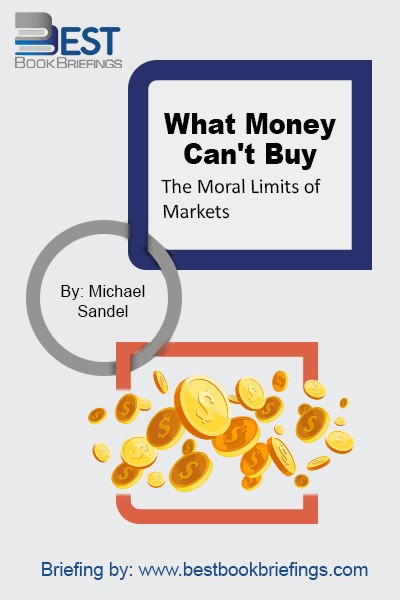What Money Can't Buy
The Moral Limits of Markets
Number of pages: 256
Publisher: Farrar, Straus and Giroux
BBB Library: Politics and Public Affairs, CSR and NGO
ISBN: 9780374533656
Editorial Review
We live at a time when almost everything can be bought and sold. Over the past three decades, markets—and market values—have come to govern our lives as never before. We did not arrive at this condition through any deliberate choice. It is almost as if it came upon us. As the cold war ended, markets and market thinking enjoyed unrivaled prestige, understandably so. No other mechanism for organizing the production and distribution of goods had proved as successful at generating affluence and prosperity. And yet, even as growing numbers of countries around the world embraced market mechanisms in the operation of their economies, something else was happening. Market values were coming to play a greater role in social life. Economics was becoming an imperial domain. Today, the logic of buying and selling no longer applies to material goods alone but increasingly governs the whole of life. It is time to ask whether we want to live this way.
Book Reviews
Books on Related Topics

Jaron Lanier is the father of virtual reality and one of the world’s most brilliant thinkers. Who Owns the Future? is his visionary reckoning with the most urgent economic and social trend of our age: the poisonous concentration of money and power in our digital networks.



